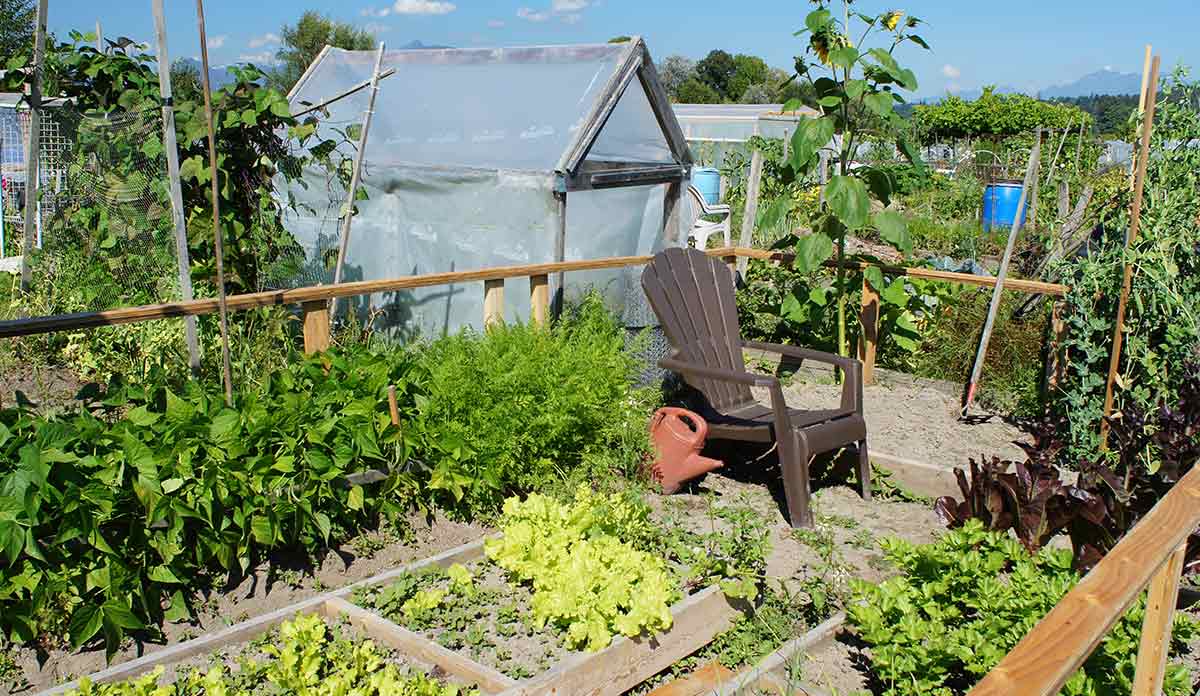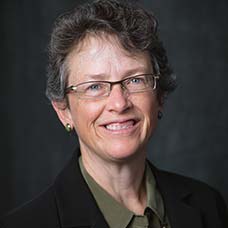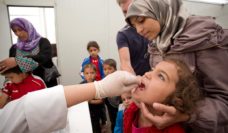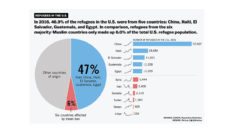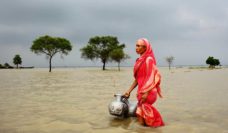Refugees and immigrants arriving in any country encounter numerous challenges adapting to their new home. These include learning a new language and culture, and finding jobs, schools and housing. In addition, many refugees experienced various forms of trauma and hardship before their arrival, which may exacerbate their stress. These multiple barriers often enhance refugees’ social isolation and limit opportunities for integration in the local community.
One faith-based refugee referral agency, Arrive Ministries in St. Paul, Minnesota, recognized these challenges. Knowing that many of their clients were farmers in their home country, they collaborated with churches to convert their church lawns into gardens. The gardens began as a pilot project in 2010, with a handful of churches, and now includes over 20 churches and 1200 gardeners. Arrive Ministries partners with other refugee social service agencies to connect gardeners and churches including the Karen Organization of Minnesota (KOM), the Bhutanese Community of Minnesota (BCOM) and CAPI, a refugee and immigrant-led social support organization.
We conducted an evaluation of the project in 2014 to assess the impact on the gardeners and churches. We surveyed 97 participants before the gardening project began and after their involvement and conducted six focus groups with gardeners to assess the change and benefits from the gardeners’ experience. The survey asked questions about daily vegetable consumption, social connections with other gardeners and church volunteers, depression, food insecurity, food subsidy programs such as school lunch or food shelves, gardening benefits, estimated cost savings from groceries, logistics and recommendations for change. The focus groups explored in more depth the benefits of gardening, specific barriers or challenges to gardening and the agencies supporting the project. The gardeners were Karen and Lisu refugees who had fled Myanmar. Bhutanese arriving from Nepal were a second major group. Overall, 65% of the gardeners were women, 67% Karen, and most had been in the U.S. three years. Their average age was 39 and 18% reported speaking English “pretty well” or “fluently.” Gardeners lived from a quarter mile to four miles from their plots and typically carpooled.
For refugees, who often live in urban apartments, the physical garden space around the churches became a social space where they could spend time with friends and family and children could play outside.
The gardeners identified three primary benefits from the project: (1) physical, (2) social, and (3) emotional well-being and mental health. The physical benefits began with being outdoors and the physical labor of planting, weeding, and harvesting. Upon harvest, gardeners delighted in their vegetables and shared them generously with friends and church volunteers. Among gardeners, we saw a 24% increase in the amount of vegetable consumption from the start of the growing season. Several gardeners talked about the value of their vegetables being “chemically free.”
The social, emotional, and mental health benefits of gardening came out strongly in the focus groups. For refugees, who often live in urban apartments, the physical garden space around the churches became a social space where they could spend time with friends and family and children could play outside. Gardeners also spoke of feeling emotionally renewed. One woman stated, “When I’m feeling down, I come to the garden.” Others shared that watching the plants grow made them happy. Across ethnic groups, gardeners stated how the garden connected them with home and their sense of identity, taking them back to a time before they became a “foreigner.” As one gardener explained: “When we, the Karen, lived back in the village, we survived by farming and gardening so now it becomes a part of us and it is what we love to do… Doing gardening here makes us feel like we are living in our own country.”
Past studies have illuminated the therapeutic nature of gardens on stress but this is the first explicitly focused on refugee and immigrant populations. The Arrive Ministries community garden initiative highlights opportunities for policy makers and community organizations to partner with refugees and related service organizations to improve health and strengthen community social ties and networks. Providing grants for both the public and private sector to utilize vacant land and build new community relationships can enhance both human and environmental health.
Feature image: Tjflex2, Colony Farm Community Garden, used under CC BY-NC-ND 2.0









